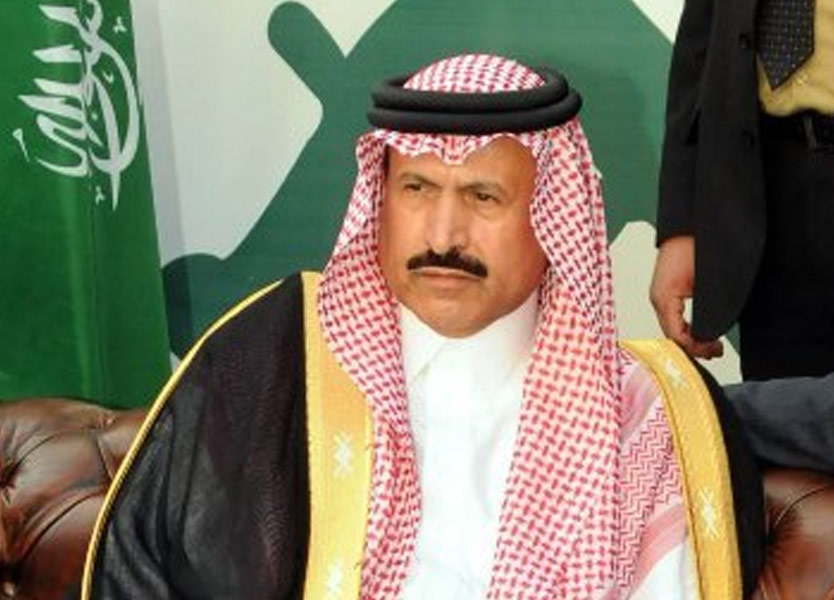Asiri: Hezbollah’s anti-Saudi diatribe won’t benefit Lebanon
Hussein Dakroub/The Daily Star/Apr. 14, 2015 /BEIRUT
Saudi Ambassador to Lebanon Ali Awad Asiri Monday implicitly lashed out at Hezbollah over its stance on the two-week-long war in Yemen, saying the Shiite party’s tirade against Riyadh did not serve Lebanon’s interests. Defending the Saudi-led military intervention against Iranian-backed Houthi rebels in Yemen, Asiri also implicitly accused Iran of exploiting the Houthis to further its own ends in the volatile region. He spoke during a meeting at his residence in Beirut with envoys of member countries of operation “Decisive Storm,” a regional coalition led by Saudi Arabia which since March 26 has carried out airstrikes against the Houthis, who overran the capital Sanaa in September and have expanded to other parts of Yemen.
Riyadh fears the rebels could take over the entire country and move it into the orbit of Iran, Saudi Arabia’s regional rival. The meeting, also attended by a number of Lebanese and media political figures, discussed latest developments in the region, particularly the events in Yemen, in addition to the situation in Lebanon, the National News Agency reported. He explained the reasons that prompted Saudi Arabia to take a decision to launch the “Decisive Storm” operation and the goals it is seeking to achieve behind it, which are: “preserving legitimacy in Yemen and its territorial integrity, the safety of the people and the continuity of institutions.”
“Some regional powers, which do not want goodness for Yemen, have lured a segment of its people and exploited them to achieve goals and objectives serving their interests,” Asiri told the ambassadors of Kuwait, Qatar, the United Arab Emirates, Jordan, Egypt, Sudan, Morocco and Turkey, according to the NNA, in a clear reference to Iran.
Responding to senior Iranian officials’ vehement verbal attacks on Saudi Arabia, he said: “These [regional powers] have now geared [their efforts] toward covering up their negative acts and violations by attempting to criticize the kingdom, its leadership and distort its image, while the entire world knows the truth of the historic neighborly relations linking the kingdom with Yemen and the countless aid the kingdom’s leadership has extended to the Yemeni people.”
In a clear allusion to Hezbollah, whose leader Sayyed Hasan Nasrallah has blasted Saudi Arabia for spearheading a coalition to launch a war on Yemen, Asiri expressed his regret over the “emotional manner with which a Lebanese party is dealing with the Yemen issue.”
“How can Lebanon’s interests be served in the stances taken by this party?” he asked. For their part, the ambassadors said their countries’ support for Saudi Arabia in the “Decisive Storm” operation was “a strategic decision.” They denounced the “offensive and slander campaigns” against Saudi Arabia and its ambassador to Lebanon launched by some political and media parties, saying such campaigns “exposed the interests of Lebanon and its citizens to danger,” the NNA reported.
Last month, Asiri struck back at Nasrallah, who has launched a fierce tirade against Saudi Arabia and accused Riyadh of launching the war in an attempt to regain control over the impoverished country. Asiri said Nasrallah’s remarks contained false allegations and reflected the state of confusion of his patron, Iran.
The Yemen offensive has already triggered a bitter war of words between Lebanon’s Saudi and Iran allies. The airstrikes against Houthi targets have opened a new front in a long-simmering rivalry between Saudi Arabia and Iran in the Gulf region. Saudi Foreign Minister Saud al-Faisal said his country intervened at the request of Yemeni President Abed Rabbou Mansour Hadi, who fled for Riyadh. Iran has rejected accusations of arming the rebels and its Supreme Leader Ayatollah Ali Khamenei has described the Saudi-led campaign as “genocide.” Also Hezbollah’s deputy chief lashed out at Saudi Arabia, accusing Riyadh of committing “genocide.”In an interview with the Associated Press, Sheikh Naim Qassem said Saudi Arabia made a “strategic mistake” by interfering in Yemen’s internal affairs and warned that the kingdom would “pay a heavy price.
”“Saudi Arabia has embroiled itself and will incur very serious losses that have started to show and will increasingly reflect on its status, its internal situation and its role in the region,” he said. “What happened in Yemen is a crime that cannot be ignored. ”“What is happening in Yemen today will reflect on Saudi Arabia internally,” Qassem said, claiming that the kingdom has its own domestic problems and several “factors that may cause the internal situation to implode” there. “So it would be wiser for it not to interfere in Yemen’s affairs in a negative way, but rather in a positive way by calling for dialogue.”However, March 14 MP Marwan Hamade said the fierce tirade against Saudi Arabia reflected the collapse of Iran’s project in Lebanon, Syria, Iraq, Yemen and Bahrain. “Saudi Arabia has intervened in Yemen after it was fed up with Iran’s intervention and its support for the Houthi militia with arms by air and by sea,” Hamade said in an interview to be published with Al-Liwaa daily Tuesday. “Iran has invaded Arab countries to strike the Arab identity.
The vicious campaign against Saudi Arabia has confirmed the failure of Iran’s project in Lebanon, Syria, Iraq, Bahrain and Yemen.” He added that the “Decisive Storm” operation was designed “to protect Yemen and its constitutional legitimacy as well as Saudi Arabia and pan-Arab security, rather than attacking Iran.”Meanwhile, Nasrallah is scheduled to speak Friday for the third time in less than a month on the Yemen war amid tensions between Hezbollah and its political rival the Future Movement. In a statement released late Sunday, Hezbollah called for a rally at 5 p.m. Friday to protest the Saudi-led military intervention in Yemen. Nasrallah will address the rally, the statement said. The speech comes at a sensitive time in Future-Hezbollah relations, which have soured over the Yemen war.




















